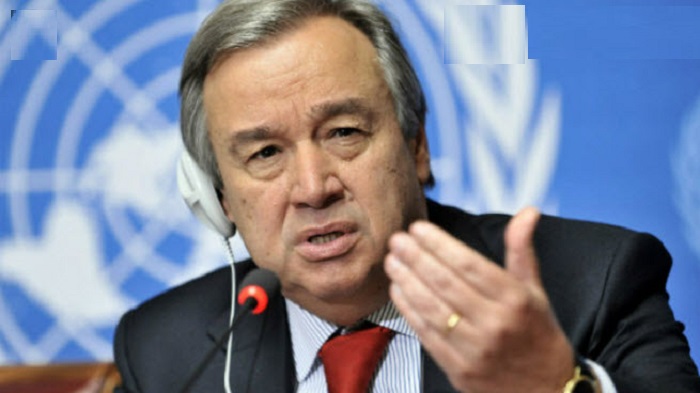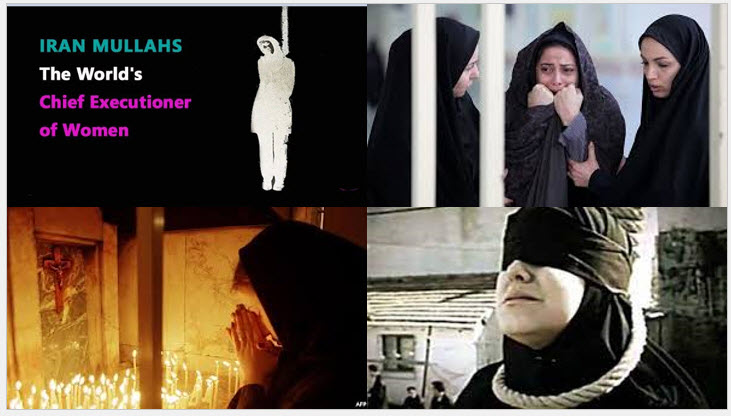
None of the criteria outlined in the Universal Declaration of Human Rights and International Humanitarian Law are met by the state of human rights in Iran. The Iranian regime permits itself to violate any kind of human rights while citing the principles of Islam to justify its criminal and inhuman laws. Even with modern technology, sentences like the death penalty have been outlawed in many nations during the era of the boom in consciousness and the advancement of human relations.
The Iranian resistance has today, with the aid of the media, been successful in educating the public about the appalling human rights situation within the Velayat-e-Faqih system. Now, the world is reflecting some of the horrifying realities.
According to the report, at least 310 executions were carried out arbitrarily in Iran in 2021, an increase from 2020. According to the report, there will be 260 executions in 2020. It is noteworthy that only 55 of these executions have been made public by the government.
The Secretary-report General urges an end to child executions and stresses that crimes committed by those under the age of 18 should not carry the death penalty. The Secretary-report General includes a section on how the protests in Isfahan and Khuzestan were put down. He discussed the suppression of Khuzestan’s protesting populace in this report:

“On some occasions, the authorities reportedly used plainclothes agents to pose as armed or violent protesters and subsequently blamed the deaths of protesters on them. Police and security forces’ firing of live ammunition, including the use of automatic weapons and shotguns firing bird shots, and of other potentially lethal force led to the killing of at least nine individuals, including a minor, and to the injuring of many, including children.”
The brutal killing of Kulbars (cross-border laborers) in Kurdistan and the impoverished Baluch fuel porters is one of the crimes that the Velayat-e-Faqih regime justifies under the guise of combating “smuggling” across borders. Social media is flooded with images and videos of this massacre.
“In 2021, 53 couriers were reportedly killed as a result of direct shootings by border officials, and over 130, including minors, injured,” according to the Secretary-report. General’s According to reports, border officials shot directly at least 18 border couriers between January 1 and March 20, 2022.
Flogging continued to be a common form of punishment during the reporting period, the Secretary-report General emphasizes, “in addition, the Penal Code continued to retain forms of punishment that could be considered torture, cruel, inhumane, and degrading under international human rights law.”
Recent reports of violence against women serve as a stark reminder of the need for swift passage of legislation that takes a comprehensive approach to address and prevent this problem. A 17-year-old girl was beheaded by her husband in February 2022.
Later, the police detained her husband, who had previously threatened to kill her. At least 60 women have been murdered in Khuzestan Province since 2020 for alleged “honor”-related reasons.
The femicide case mentioned above serves as an example of the negative effects of child marriage and the extreme vulnerability of children forced into marriage to domestic violence.

This report uses phrases like “arbitrary executions,” “use of deadly force by security forces against peaceful protesters and kolbars,” “arbitrary deprivation of the right to life in detention as a result of torture,” and “deprivation of timely access to medical care” is the result of numerous efforts to demonstrate Iran’s flagrant violations of human rights.
These actions are the result of the bravery and sacrifice of the Iranian people. Increased advocacy for Iran’s trampled human rights must be made into a potent tool for overthrowing the government.
MEK Iran (follow us on Twitter and Facebook), Maryam Rajavi’s on her site, Twitter & Facebook, NCRI (Twitter & Facebook), and People’s Mojahedin Organization of Iran – MEK IRAN – YouTub








